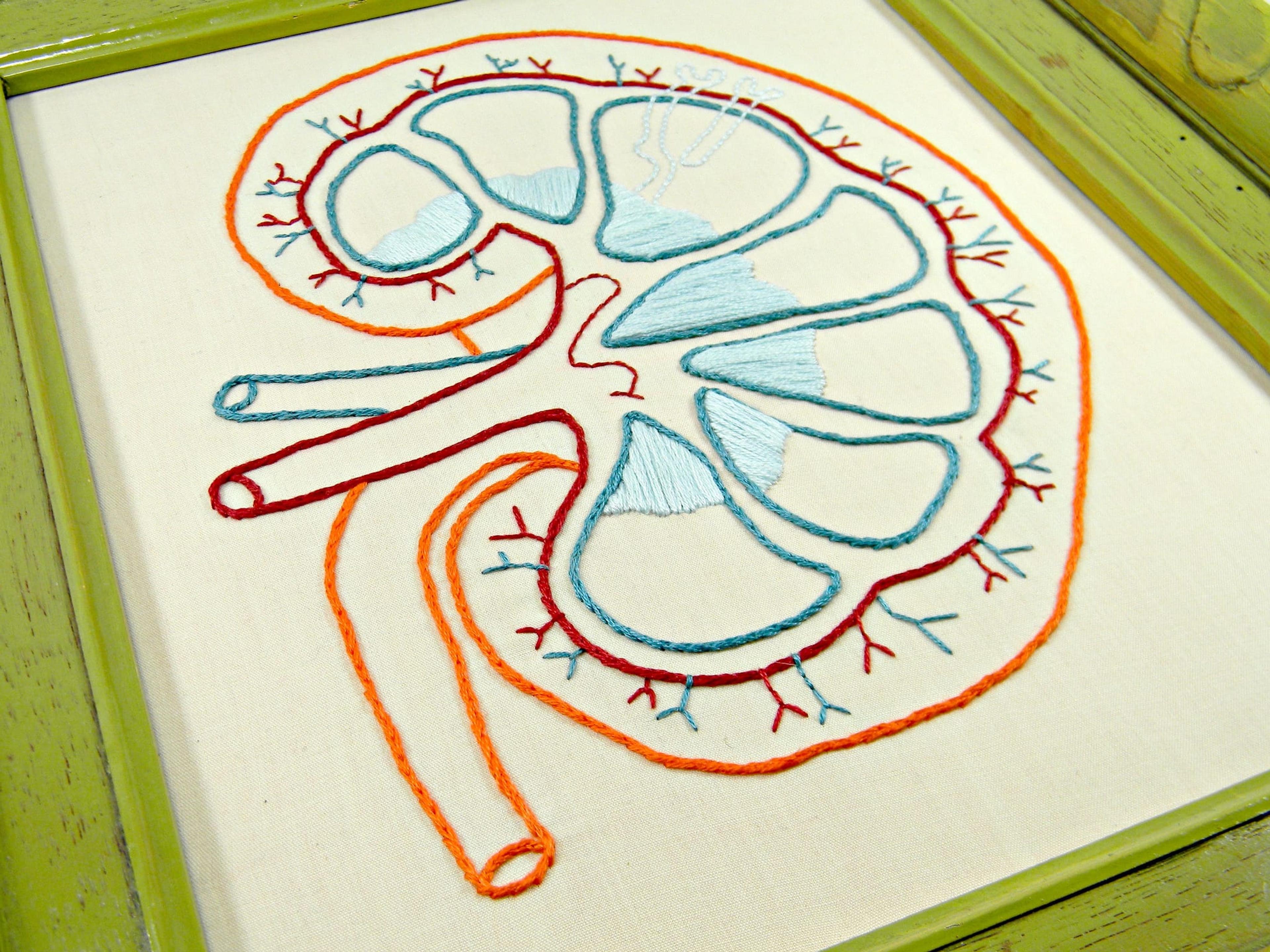
For those with end-stage kidney disease, a donor kidney can mean a new lease on life. While the transplant operation is a big deal to patients, it’s somewhat routine to the kidney transplant team at Mercy Health Saint Mary’s (MHSM). The Grand Rapids-based Kidney Transplant Program has some of the highest success rates in Michigan and is one of the largest community hospital-based programs in the country. Averaging 80 to 90 transplants every year, the transplant team serves patients from the entire west side of the state. It’s the only Grand Rapids hospital to offer the service for adult patients. About one-third of those life-changing kidneys come from living donors, which is ideal for several reasons, explains transplant coordinator Simie Bredeweg-DeJager. The first is that a kidney from a living donor will likely last longer. Patients can expect a kidney transplant to function for about 12 to 15 years from a living donor compared to ten years from a deceased donor. Living donors also help patients bypass the waiting list for deceased donors. At MHSM, there are currently 349 patients waiting for a kidney. In Michigan, patients might have a three- to five-year wait and according to the National Kidney Foundation, 12 people die waiting for a kidney every day across the country. “The goal is to have a living donor transplant because the wait list is long,” Bredeweg-DeJager said. Curious about how living kidney donation works? Here are the basics: Finding a Match When a patient’s glomerular filtration rate, a test that checks kidney function, falls below 20, a patient is eligible for a kidney transplant. In addition to going on the deceased donor waiting list, patients can ask friends and family to see if they’d be a good donor. There are three main factors that go into determining a good fit.
- Blood type has to be compatible.
- Blood from the donor and recipient is then cross-matched to ensure there’s no negative reaction that could indicate the likelihood that the kidney would be rejected.
- The donor’s health is evaluated to rule out foreseeable kidney problems in the future such as hypertension, diabetes, or other health conditions that might be indicated through the patient’s family health history.
Surgery and Recovery Once a match is determined, the donor and recipient are scheduled for their respective surgeries.
- Recipient: Surgery for the recipient takes about four hours or less, with a hospital stay of five to six days. The donor kidney will be placed in the patient’s abdomen through a long incision. Unless the diseased kidney is cancerous or polycystic, it won’t be removed, meaning the patient may have three kidneys. The transplanted kidney is actually located in the pelvic region, where it’s more protected. Patients aren’t able to drive once they’re discharged from the hospital and recovery can take up to six weeks.
- Donor: To retrieve a healthy kidney from a living donor, surgeons can actually use laparoscopic techniques, which are less invasive and reduce recovery time and discomfort thanks to minimal incisions. The procedure takes about three hours with a hospital stay of two to three days. The patient is typically up and walking the next day and won’t have many restrictions after the surgery. Donors are advised to be vigilant about their health since they’ll only have one functioning kidney, paying particular care to stay hydrated, avoid contact sports, NSAIDS medications, and high-protein diets, which can overtax the remaining kidney. The donor’s medical expenses are covered by the recipient’s medical insurance. If a donor develops a kidney problem later in life, they’re moved higher on the transplant list. “We call it extra credit,” Bredeweg-DeJager said.
With improvements in the screening process for live donors, success rates are very favorable. At MHSM, recipient adult patients have a greater than 98 percent survival rate after one year and a 94 percent rate after three years. Bredeweg-DeJager said MHSM sees higher-than-average rates for living donors, which she attributes to an overall philanthropic ethos in the region. “West Michigan is amazing, to be honest,” she said. If you enjoyed this post, you might also like:
- Grand Rapids Hairstylist Gifts Kidney to Client
- Blue Care Network Employees Go Beyond the Call of Duty for Each Other
- Have You Registered to Become a Donor Yet?
Photo credit: Hey Paul Studios





